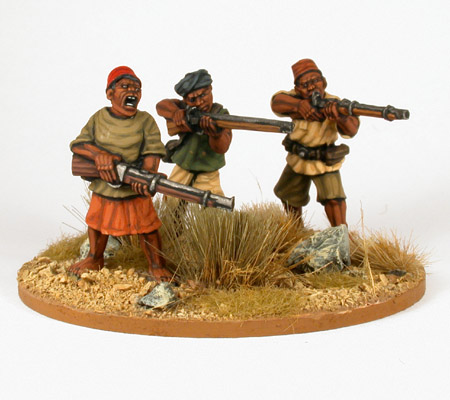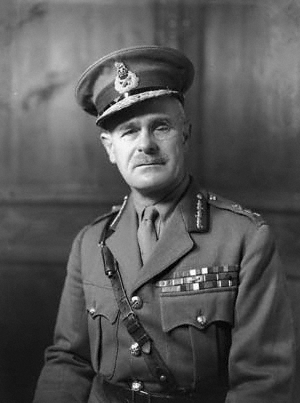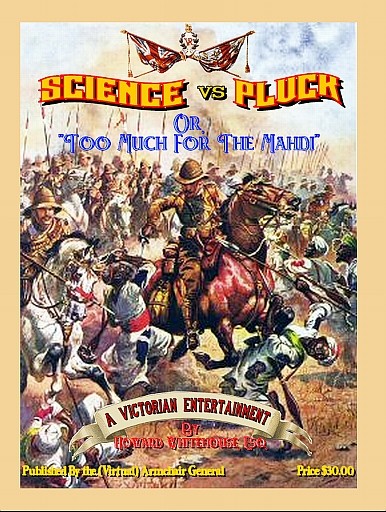Find it her on the Maximum Effort blog

Next week I hope to offer a review of Thompson's White War, followed by Behan's The Resistable Rise of Benito Mussolini. I think I might need a post after that to address certain contentious issues.


 Derk's Miniatures Blog
Derk's Miniatures Blog Napoleonic Hussar
Napoleonic Hussar



Another pic from my holidays in Northern Italy. The Risorgimento Museum in Genova holds an interesting object of Garibaldi's prodigious history.
Born in the big port of Genova in 1807, he rolled into a life in the merchant navy. But on a trip in the Black Sea in 1833, he met Italian revolutionary nationalists and was converted to the cause of Italian unification.
His involvement in revolutionary plots forced him to flee to South America, where he fought for Brasilian revolution and Uruguayan civil war. He returned to Italy for the 1848 revolts and the next year declared a short lived Roman Republic.
When these failed, Garibaldi again fled abroad, but he was back in time for the 1859-1866 campaigns of unification. His attempt to bring Rome under the Italian flag in 1867 failed.
He wasn't done fighting yet, because his last feat if arms was for the French Republic by the end of 1870. He led the Armee de les Vosges composed of (Italian) volunteers against the Prussians until Paris capitulated in January 1871.
Cool to find a flag of that army in the Risorgimento museum.
















On May 9th 1915, the monument was christened for the 1,000 redshirts that accompanied Garibaldi on his trip to Sicily in 1860, beginning the 'liberation' of Southern Italy.
I put liberation in quotations because it soon became clear that the replacement of the Bourbon dynasty with that of Savoy didn't make that much of a difference to the Apulians, Sicilians and Calabrians. For decades the new Italian army was involved in putting down the ongoing revolt in the south, and banditism continued well into the 20th century.
The opening ceremony stood in the light of the Italian intervention in WWI at the side of the Entente. Italy had been allied to Germany and Austria-Hungary since 1882 but now opportunistically threw its weight on the other side, claiming not only the Trentino, Friuli and Triëste, but large parts of the Dalmatian coast in the secret treaty with Great Britain and France.
Gabriele d'Annunzio, Italy's most famous poet was recalled from Paris to whip up public fervour for war. France paid off his debts so he wouldn't be arrested.
On May 9th he promised, demanded bloody sacrifice: 'Blessed are the merciful, for they shall have splendid blood to wipe away, radiant pain to bind up'.
I'd think d'Annunzio got what he wanted. By 1918 over 670,000 Italians had lost their lives.

Picked this one up in Levanto on Saturday in a huge stack of second hand books. Interesting to kniw how it ended up there.
This is the account of Sarrail's command of the Armee de l'Orient in Macedonia from late 1915 to spring 1918. Published in 1920.
Sarrail was reluctant to go there, as he had been relieved of his army command on the west front and this was obviously a side show. He demanded and got an army command, more troops and independence from the Brits.